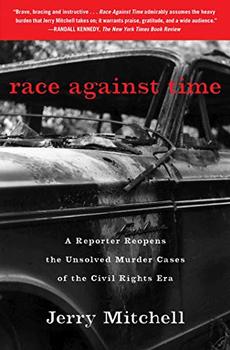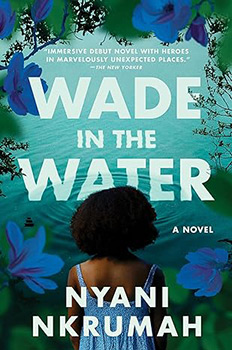Summary | Excerpt | Reviews | Beyond the book | Read-Alikes | Genres & Themes | Author Bio

A Reporter Reopens the Unsolved Murder Cases of the Civil Rights Era
by Jerry MitchellJerry Mitchell spent nearly three decades trailing cold cases from the Civil Rights Movement. As a court reporter in the 1980s, he covered day-to-day cases for the Clarion-Ledger, a respected Jackson, Mississippi paper. When he received a lead about an old Civil Rights Era murder case (see Beyond the Book), he shifted his investigative work to unveiling the truths of the past. His efforts reignited the legal process in several instances, and today, he's known for chipping away at some of the most notorious race cases in Mississippi and the surrounding South. In Race Against Time, Mitchell relays his detective work through the late-80s, '90s and '00s, describing the paths these cases took in and out of the courtroom — from interviewing the Ku Klux Klan to discovering secret FBI spy documents called the Sovereignty Commission files.
Throughout the '50s and '60s, hundreds of people were killed working to secure basic human rights for people of color, attempting to end legalized discrimination, secure voters' rights, eliminate legalized segregation, and stop disenfranchisement. Mitchell's book focuses on four of these cases: the assassination of NAACP leader Medgar Evers, the firebomb assassination of community activist Vernon Dahmer, the bombing of Birmingham's 16th Street Baptist Church that killed four children, and the "Freedom Summer Murders" of civil rights workers James Chaney, Andrew Goodman and Michael Schwerner. With most of the physical evidence destroyed and potential witnesses dying off, it truly is a race against time as he unearths the truth and pushes for legal action before it's too late.
Mitchell's writing is engaging and impactful from start to finish. Though told largely in his own words from a present point-of-view, Race Against Time is a fascinating mixture of interviews, court transcripts, testimonies, personal conversations, article excerpts, secret files, dead-of-night tip-offs and secret meetings. Readers are drawn directly into the hearts of these cases, stunned by breaking revelations right alongside the reporter. He peppers in pieces of his family life, career and personal perspective, creating a cohesive narrative and connecting the cases together.
Readers will get a good sense of the wider context of the social movements of the era as well, including the organizations that pushed for progress during the Civil Rights Movement, but also their regressive counterparts that promoted anti-Semitism, white nationalism, ethnocentrism and racism. Mitchell explains how these organizations functioned internally and how the murderers within them got away with their crimes for decades as the result of biased juries, crooked law enforcement, government intervention and cover-ups.
Despite the 30+ awards Mitchell has accepted for his contributions to journalism, some have criticized his work, arguing that the past ought to be left in the past. Why this reporting, and why now? Throughout the book, he responds to these questions through the words of the families, communities, survivors and activists surrounding these cases. In 2005, when Attorney General Jim Hood delivered closing statements to the jury in the trial of Edgar Ray Killen, implicated in the Freedom Summer murders, he stated the significance of these types of cases: "Many think it's too late to look back at the skeletons of our past, but these skeletons have names, and they have faces." Many people want to acknowledge the past so that they can honor the memory of martyrs, grieve the losses, and move forward. Others fear that history will repeat itself if these crimes go unpunished. Some simply argue for the inherent value of justice. Mitchell declares that, regardless of the reason, "We must remember, and then act."
For more information on Jerry Mitchell's work, you may wish to listen to a story he told The Moth about interviewing Ku Klux Klan members, or watch the TEDTalk in which he discusses some of his biggest breakthroughs.
![]() This review was originally published in The BookBrowse Review in March 2020, and has been updated for the
February 2021 edition.
Click here to go to this issue.
This review was originally published in The BookBrowse Review in March 2020, and has been updated for the
February 2021 edition.
Click here to go to this issue.

If you liked Race Against Time, try these:

by Wright Thompson
Published 2024
A shocking and revelatory account of the murder of Emmett Till that lays bare how forces from around the world converged on the Mississippi Delta in the long lead-up to the crime, and how the truth was erased for so long.

by Nyani Nkrumah
Published 2024
Resonant with the emotional urgency of Alice Walker's classic Meridian and the poignant charm of Sue Monk Kidd's The Secret Life of Bees, a gripping debut novel of female power and vulnerability, race, and class that explores the unlikely friendship between a precocious black girl and a mysterious white woman in a small Mississippi town in the ...
Your guide toexceptional books
BookBrowse seeks out and recommends the best in contemporary fiction and nonfiction—books that not only engage and entertain but also deepen our understanding of ourselves and the world around us.